Russia protests: Hundreds detained during unauthorised demonstration
- Published
Russia protests: Police arrest scores of illegal demonstrators
More than 600 people have been detained over an unauthorised protest in Moscow, amid reports of police violence.
Protesters had gathered in the Russian capital after authorities disqualified a number of opposition candidates from standing in local elections.
Leading activist Lyubov Sobol was arrested before she could reach the rally, attended by 1,500 people.
Video from the rally shows officers using their batons against demonstrators while making arrests.
Russian officials initially said there had been just 30 arrests and 350 attendees.
Monitoring group OVD-Info, which runs a hotline for reporting detentions, had been keeping a running toll, which rapidly jumped from a few dozen arrests to several hundred.
Officers in riot gear had earlier moved into the capital and warned people not to protest. Russian news agency TASS reported that one police officer had been injured while making an arrest.
But protesters also reported mistreatment at the hands of police.
Footage broadcast on Russian television and shared on social media showed police pin people to the ground, kicking or using batons on them. One man told Dozhd TV channel that one such person had been removed from the police van for a beating after asking officers to identify themselves.


Banned from rallying, the organisers designated this a Saturday "stroll" with multiple gathering points along Moscow's boulevard ring.
So it wasn't always obvious who was protesting. The old ladies on the benches? The man walking his dog? The food delivery man, right in the middle of it?
To the riot police, out in huge numbers in helmets and body armour, it didn't seem to matter much. They erected metal barriers and blocked off roads.
Then a woman's voice came over a loudspeaker, to declare that the security forces included conscripts. "Your sons are among them!", she said. Then those conscripts - and the professionals - swooped and grabbed people. I saw one man being carried off upside down still strapped to his bicycle.
Once again, hundreds have been detained. This time, though, the police mostly kept their batons buckled to their belts. But the defiance I heard from protesters suggests they'll be back.

Alexander Svidersky, a member of a district electoral commission, said he was arrested while out with his dog, which he managed to pass off to an acquaintance before being bundled into a police van. OVD-Info reported he said he was later taken out and hit around the kidneys before being dragged to another van.
Detainees at one police station also told OVD-Info they were threatened with having their fingers "cut off" if they did not allow their fingerprints to be taken.
What happened to Lyubov Sobol?
Ms Sobol, a lawyer and video blogger, is one of the candidates excluded from the local elections. She has been on hunger strike for 21 days, and called on others to join the unsanctioned protest on Saturday.
She was in a taxi about to set off for the rally when police officers dragged her into a black van.
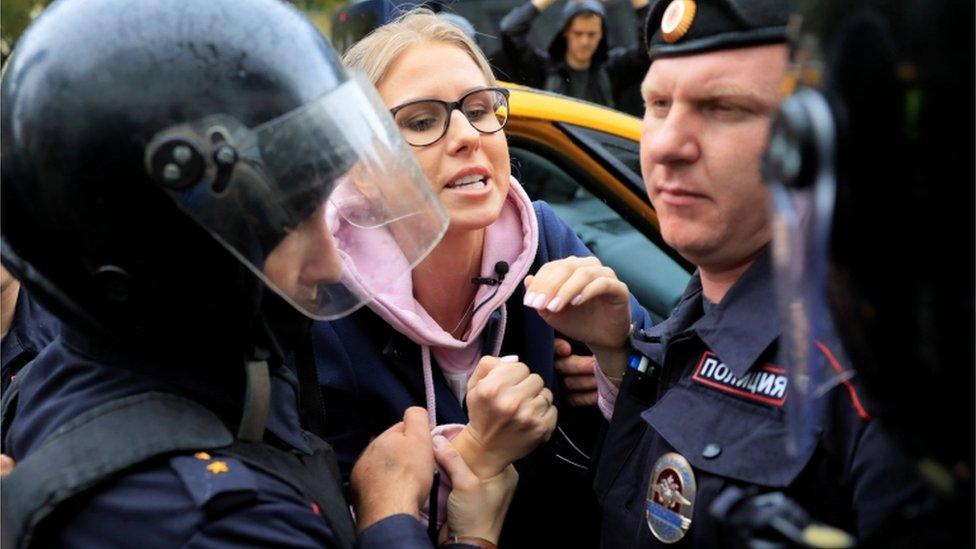
Ms Sobol was about to head to the unauthorised protest when she was taken by police
Hours after her arrest, she tweeted from a police station, external, saying she had spent three hours being driven "all over Moscow" by a dozen masked officers.
Authorities said she was being held for violating regulations for street demonstrations.
In July, Ms Sobol was dragged out of the electoral commission office on a sofa.
Speaking to independent broadcaster Dozhd before her detention, she said the authorities "are doing everything they can to try to intimidate the opposition".
"That is why it is important to come out today to show that Muscovites are not afraid of provocation and they are ready to continue to stand up for their rights," she added.
Lawyer Lyubov Sobol filmed herself being dragged out on a sofa
Georgy Alburov, from the anti-corruption group FBK, which has links to prominent opposition leader Alexei Navalny, tweeted from the back of a police vehicle saying he had been arrested at the protest., external
Shortly afterwards, Russian officials announced an investigation into FBK for alleged money laundering of a billion roubles ($15.3m, £16.6m) - though it did not name any individuals.
The nation's investigative committee said that funds had been knowingly obtained through criminal means.
What are the protests about?
Authorities detained more than 1,000 demonstrators last weekend during a demonstration, one of the biggest crackdowns in years.
Election authorities have barred opposition candidates from taking part in Moscow city authority elections planned for 8 September.
Officials said many of the signatures required for their candidacy applications were invalid. But protesters say they were excluded for political reasons.
Another protest held in solidarity in St Petersburg on Saturday had some 1,000 attendees - but it had not been banned by local officials, and there are no reports of arrests.
What's been happening in Moscow?
Authorities have launched an investigation into the protests.
On Friday, they detained a number of men - including Alexey Minyaylo, an independent politician and aide to Ms Sobol - in connection with the "mass unrest", a charge which carries a sentence of up to 15 years in jail.
Opposition politician Konstantin Yankauskas, who is one of the banned election candidates, completed a seven-day jail sentence on Saturday - and was immediately re-arrested as he left the detention facility.
Allow X content?
This article contains content provided by X. We ask for your permission before anything is loaded, as they may be using cookies and other technologies. You may want to read X’s cookie policy, external and privacy policy, external before accepting. To view this content choose ‘accept and continue’.

Alexei Navalny has also been arrested in connection with the rallies.
He fell ill in jail with a swollen face and rashes over his body, and was briefly hospitalised.
Doctors said he had had an extreme allergic reaction, but Mr Navalny and his personal doctor said he may have been poisoned.
- Published3 August 2019
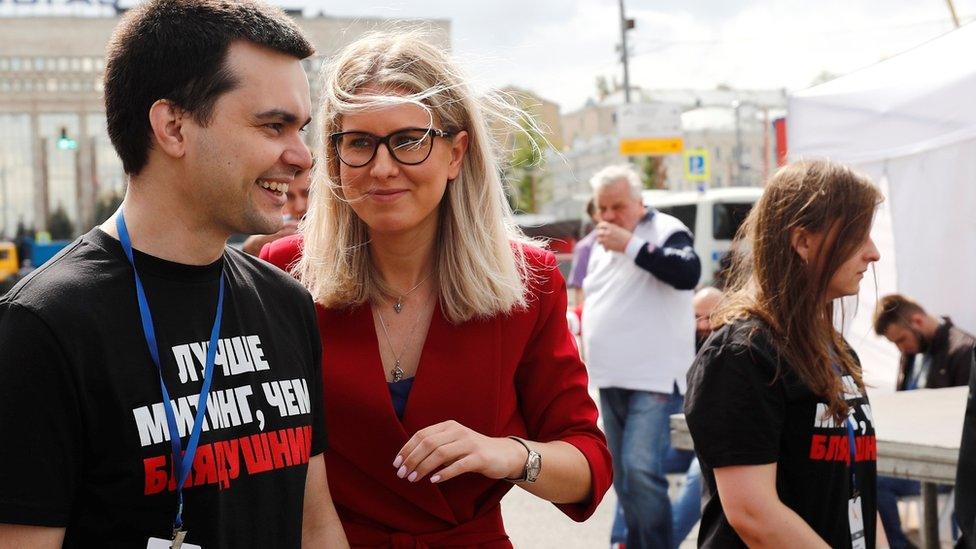
- Published27 July 2019
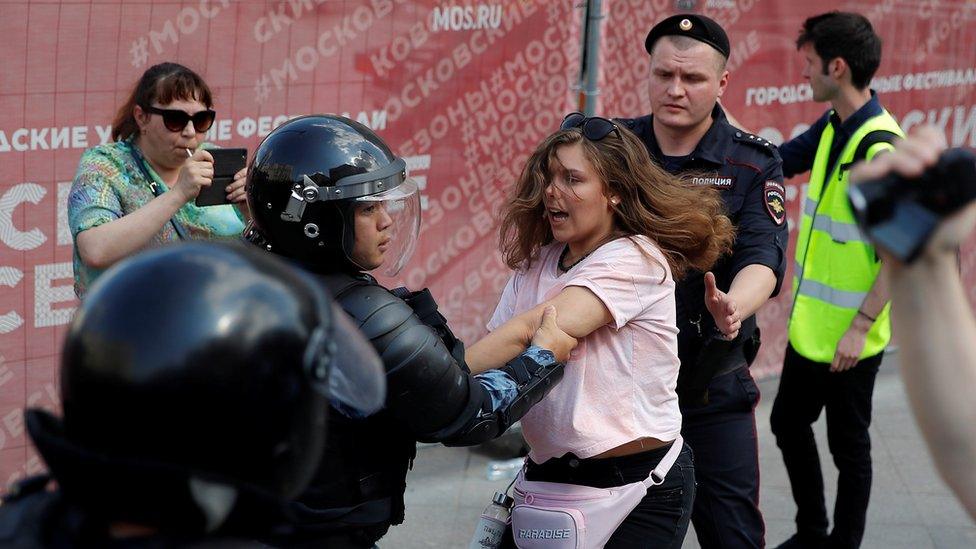
- Published27 July 2019
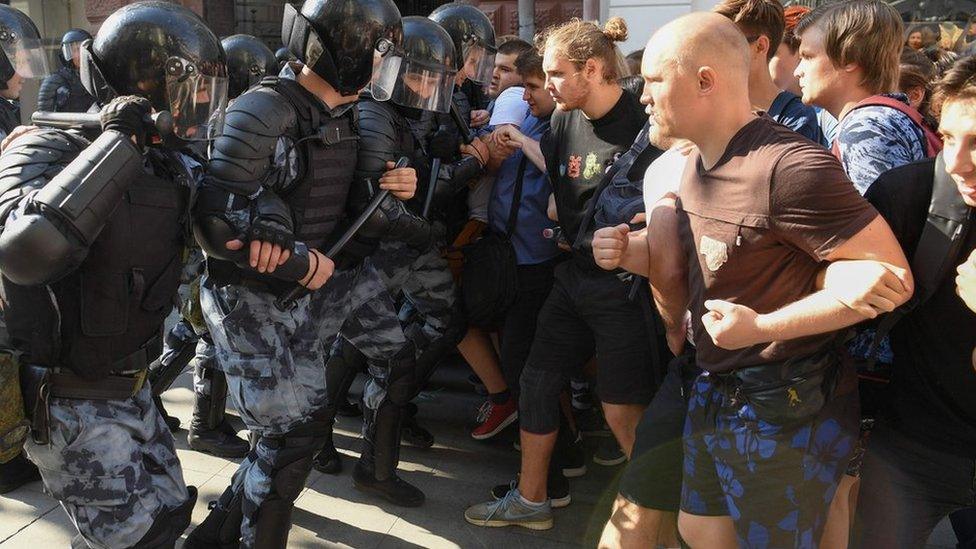
- Published16 February 2024
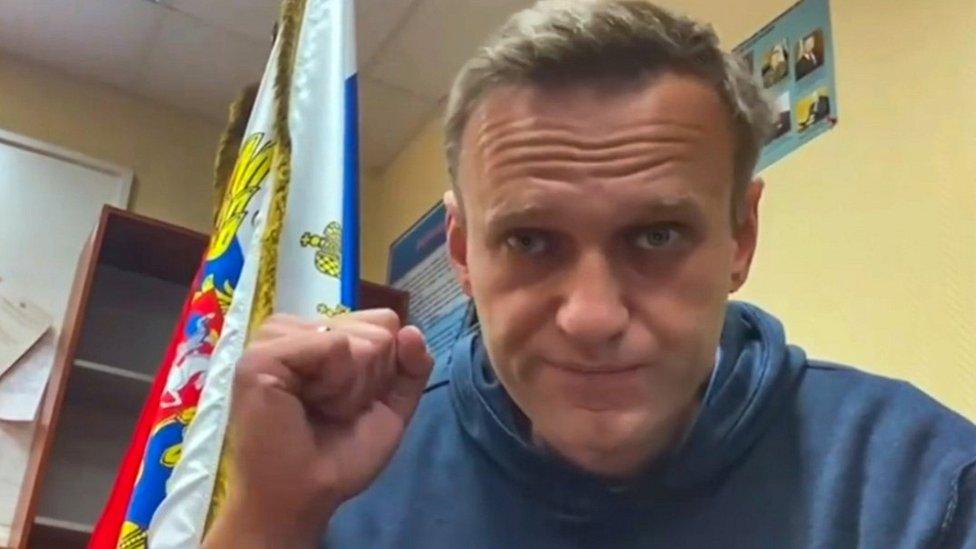
- Published25 March 2024
